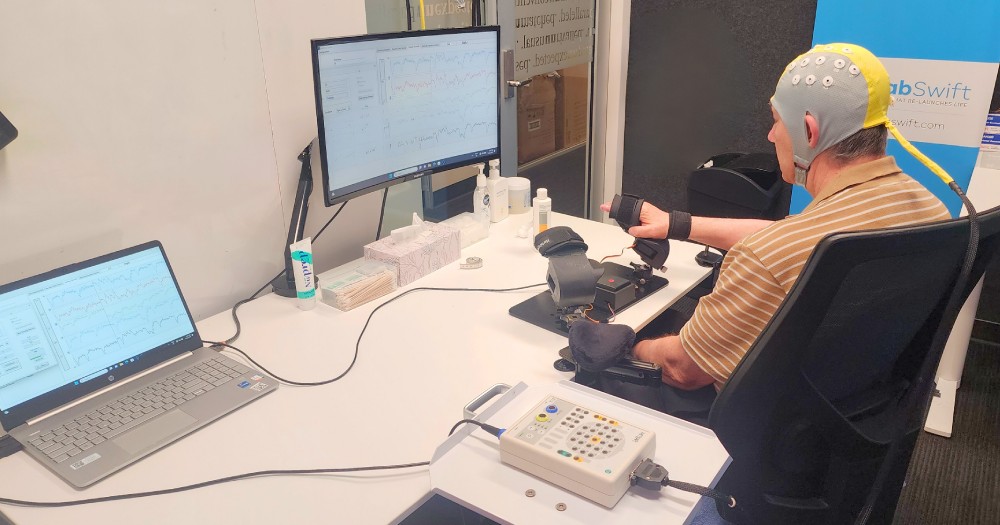Brain-computer interface could enhance hand mobility for stroke survivors

Australia-based RehabSwift has developed cutting-edge brain-computer interface therapy, which is transforming stroke rehabilitation by optimizing brain signals for personalized recovery. The innovative system has shown significant improvements in hand function and patient outcomes, offering new hope for stroke survivors.
How does it work?
Using advanced technology, RehabSwift enhances hand mobility for stroke survivors by translating imagined hand movements into real actions. The therapy involves a specialized cap that measures brain activity.
During 18 sessions, participants imagine moving their fingers, and this brain activity is converted into actual finger movements by bionic hands — providing both visual and physical feedback.
RehabSwift identifies the optimal brain area for training, selects the best brainwave frequency, and adjusts the timing between imagining a movement and receiving feedback. These parameters are tailored for each user, ensuring that the rehabilitation is customized to individual needs — making it highly effective.
Why does it matter?
Stroke often leads to impaired hand function, which poses substantial challenges in daily activities. RehabSwift offers a promising solution by significantly improving hand mobility and overall arm function.
Participants in the study, published in PNAS Nexus, demonstrated remarkable progress in hand movement tests, reaction times, and hand strength — with these gains maintained even weeks after training.
"RehabSwift has the potential to revolutionize stroke rehabilitation by offering a tailored approach that meets the unique needs of each patient," said Dr. Sam Darvishi, lead researcher and developer of RehabSwift. "Our results demonstrate significant and lasting improvements in hand mobility, showcasing the power of personalized brain-computer interface therapy."
The context
The study involved twelve chronic stroke survivors from South Australia who had limited use of their arms but retained clear thinking abilities. The innovative approach of using real-time brain feedback, personalized algorithms, and advanced mechanical assistance highlights the potential of brain-computer interfaces as powerful, adaptable tools for stroke rehabilitation.
According to the authors, the findings emphasize the potential of the RehabSwift system to revolutionize stroke rehab by offering a personalized, effective, and lasting solution. This innovative therapy marks a significant advancement in enhancing the recovery process for stroke survivors, ultimately improving their quality of life.
💡Did you know?
You can take your DHArab experience to the next level with our Premium Membership.👉 Click here to learn more
🛠️Featured tool
 Easy-Peasy
Easy-Peasy
An all-in-one AI tool offering the ability to build no-code AI Bots, create articles & social media posts, convert text into natural speech in 40+ languages, create and edit images, generate videos, and more.
👉 Click here to learn more


